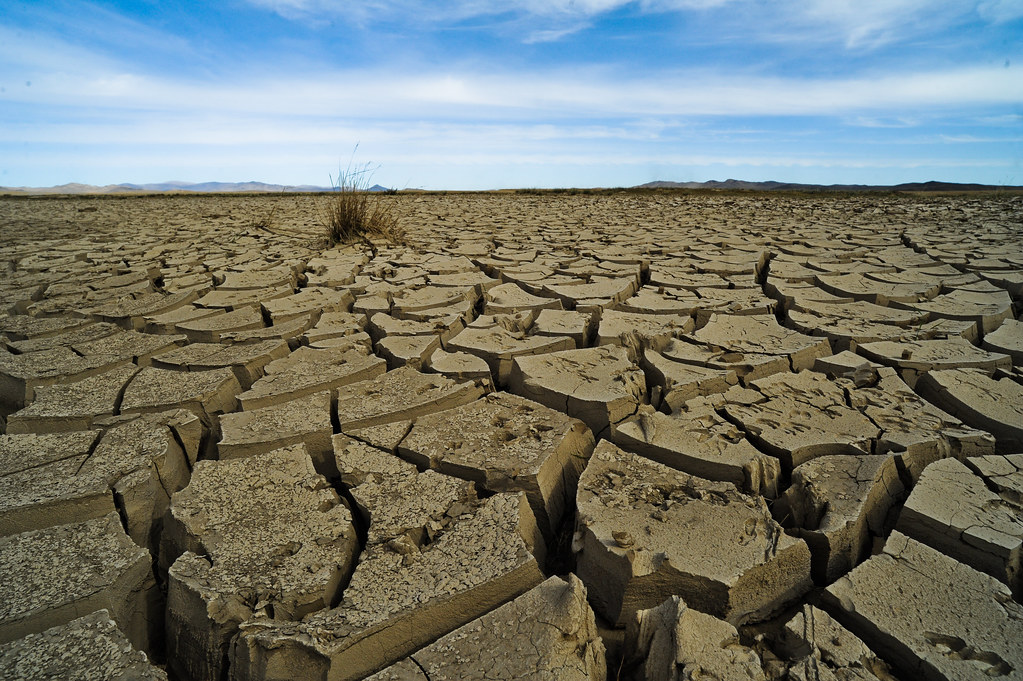Ayesha Tandon gives us her opinions of Trump’s take on climate change.
The first 100 days in the Oval Office is said to be a very telling time for any President, and Donald Trump, 45th President of the United States, is no exception. Since 20th January, when Trump took up office as arguably the most powerful figure in the world, he has been under scrutiny, and has immediately launched into action with a host of controversial decrees that have caused backlashes across the globe.
“in scientific circles, man-made climate change is an indisputable fact.”
Amongst his most publicly disputed laws (and promises for future laws) are those concerning the reduction of influence of Obamacare, the decrease in support for abortion, and the shutdown of Muslims entering the USA. In the midst of this melee of activity, Trump’s views concerning climate change can easily be put onto the back-burner. However, I find Trump’s views concerning the environment, and his treatment of the scientists who have devoted their lives to climate research, to be the most worrying of his actions so far.
Trump is widely recognised as a climate change sceptic, and claimed in an infamous tweet back in 2006 that ‘global warming was created by and for the Chinese in order to make U.S. manufacturing non-competitive’. Although climate change is sometimes debated amongst the non-scientific public, and the media still promotes the idea that climate change is just theory, in scientific circles, man-made climate change is an indisputable fact.

Image: Wiki Commons – A graph of rise of CO2 and temperature.
(This is the point at which I could cite numerous facts and figures, pull up graphs and world maps, and point to trends in ocean levels, CO2 levels, and world temperatures. This however would be a whole different article. If you are unconvinced, or would like to review the evidence again, then I suggest a movie night featuring the Academy Award winning documentary ‘An Inconvenient Truth’.)
“TRUMP… HAS NO INTENTION OF LISTENING TO THE FACTS REPORTED BY CLIMATE SCIENTISTS”
Many of Trump’s tweets and off-the-cuff comments during speeches, in which he claims that climate change is a hoax and ridicules the advice of climate scientists (‘Wait a minute — so if I take hairspray and if I spray it in my apartment, which is all sealed, you’re telling me that affects the ozone layer? I say, no way, folks. No way!’) suggest that Trump has done little to no research about climate change, and has no intention of listening to the facts reported by climate scientists. It is therefore no surprise that Trump has not picked up from where Obama, a firm believer in the importance of climate policy, left off in terms of fighting climate change.
However, few people could have predicted the extreme measures that Trump would go to within his first month on the job…
One of Trump’s most detrimental climate policies so far is his promise to withdraw the USA from the Paris climate agreement. The agreement, signed in December of 2015, was the first universal agreement to be made purely regarding climate change, and was a huge step forward regarding global cooperation to fight climate change. The treaty was a promise to reduce emissions in order to keep the global temperature increase below 2°C, and an agreement to collaborate every five years to set further goals ‘as required by science’.

Image: flickr.com
For Trump to pull out of the deal, so soon after Obama signed on it, would be a major blow. Given the wealth and power of the USA, when previous deals such as this were signed (for example the Kyoto Protocol), it was generally found that other countries would follow the example lead by the USA, thereby raising concerns that without the USA leading, other countries will not follow suit. Thankfully, it would take a few years for Trump to go through the process of withdrawing from the agreement. However, even if Trump does not withdraw from the agreement, it is very unlikely that he will be enthusiastic about following the terms of the treaty.
In fact, it seems that Trump is willing to go even further in unraveling the foundations laid down by Obama, and has vowed to cancel the clean energy plan that Obama set out.
Obama recognised the importance of reducing greenhouse gas emissions, and introduced the clean power plan as an initiative of the EPA (Environmental Protection Agency), in order to reduce greenhouse gas emissions. The power plan addresses the fact that power plants are the largest source of CO2 production in the USA, and aims to cut CO2 production from power plants by 32% by 2030, as well as promoting clean energy alternatives across the country. This was a huge step forwards, as the USA is the largest per capita contributor of CO2 in the world.
“Trump is now looking to replace Obama’s clean power plan with his
own ‘America first energy plan’ “
Trump, on the other hand, has very different priorities, and has often mocked Obama’s climate policies. At a rally in 2015, he exclaimed ‘While the world is in turmoil and falling apart in so many different ways—especially with ISIS—our president is worried about global warming… What a ridiculous situation!’
Trump is primarily a businessman, and as such, economic growth is his main priority. In order to reduce the emissions of power plants, the EPA imposes regulations that curtail the productivity of the factories, and thereby reduce the economic output of the country, which (according to Trump) loses thousands of jobs.
This, Trump claims, puts the country at a disadvantage when compared to other countries, in particular China, who Trump often claims are ‘laughing at us’. Trump is now looking to replace Obama’s clean power plan with his own ‘America first energy plan’ which involves a huge increase in the use of fossil fuels, but surprisingly makes no mention at all of solar power, despite the fact that solar power has created a total of over 50,000 jobs.
In fact, it seems that Trump is willing to go further than just to unravel the EPA’s clean power plan, and is looking to attack the EPA itself.
The EPA began in 1970, and has since been enforcing laws concerning the regulation of industrial pollutants and consumer chemicals. In 2007, it was given the additional power to regulate greenhouse gasses if they posed a threat to public health or welfare, and has been doing so by imposing pollution limits on factories etc.

Image: freephoto
The work that the EPA does is crucial in two respects; firstly, it dramatically improves the standard of living of citizens of the USA, and secondly, it helps to limit the country’s contribution to climate change by reducing greenhouse gas emissions across the country.
Trump, however, has long talked about reigning in the EPA to prevent it from hindering economic growth, stating that it imposes excessive and unnecessary regulations on businesses. It seems that now he aims to do just this through his choice of EPA leader – Scott Pruitt. Pruitt seems to share Trump’s philosophy concerning the power of the EPA over businesses, stating that ‘The American people are tired of seeing billions of dollars drained from our economy due to unnecessary EPA regulations’ and has, in fact, sued the EPA multiple times in the past on issues ranging from smog to water quality!
Many believe that Trump will use Pruitt to weaken the EPA from the inside by helping to push through legislation that would ultimately prove harmful to the organisation. For example, Trump has recently placed an executive order that will force agencies to scrap two of their existing rules for every new rule that it imposes, and requires that new regulations in 2017 will need to have a net compliance cost of $0.
Many analysts are unsure exactly how strict this now order is, and how far it applies, and many believe that Pruitt was put in charge of the EPA precisely to ensure that new rules such as this one are followed to the letter. Unsurprisingly, this order has caused uproar.
“he is wielding his newfound power to silence scientists”
A statement from the president of the Union of Concerned Scientists called the executive order ‘absurd’, stating that it imposed ‘Sophie’s choice’ on organisations, and asking ‘If, for example, the EPA wants to issue a new rule to protect kids from mercury exposure, will it need to get rid of two other science-based rules, such as limiting lead in drinking water and cutting pollution from school buses?’
Many think that Trump will completely remove global warming related policies from the EPA’s power, and reduce its role back to simply ‘water and air quality control’. This is equally absurd, as it suggests that climate change is a problem that can be contained to a specific area, whereas in fact all systems across the globe are interconnected. For example, for the EPA to properly monitor water purity across the country, they will also need to be monitoring into CO2 emissions from factories.
Whilst all of these actions are deeply unsettling, for me, this is not even the worst part. The most upsetting, and frankly frightening, of Trumps actions so far, is the way in which he is wielding his newfound power to silence scientists, preventing them from speaking out against him about the truth of climate change.
Just weeks into Trump’s inauguration, the EPA received a notice from the White House that required them to shut down all web pages relating to climate change, and notified them that any and all forms of external communication, be it press releases or Facebook status updates, would need specific permission to be released.
Not only did this see climate scientists scrambling to recover information from their online sites before they were closed down for good, but it also put many scientists in a serious ethical dilemma, as they were caught directly between their gag order from the White House, and the ethical policy of the EPA itself.
The EPA is founded on scientific research, and strongly emphasises scientific integrity and openness, seeing it as the duty of their scientists to protect and inform the general public of environmental dangers. Trumps blatant silencing of the experts of such an important field is very alarming.

Image: flickr.com
The fight against climate change is a global effort, and one that a few months ago was being strongly driven by the USA.
However, Trump’s business-minded competitiveness with regards to economic success has interfered with this system, and it seems that the world can no longer turn to America to lead the climate revolution.
We must hope now that other countries are willing to take initiative and fight for our climate whilst there is still time.


